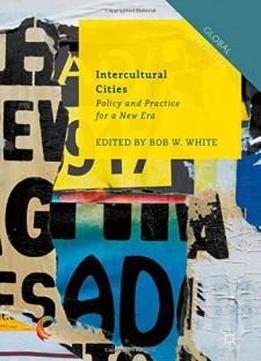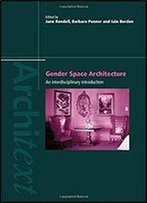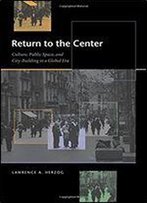
Intercultural Cities: Policy And Practice For A New Era (global Diversities)
by Bob W. White /
2017 / English / PDF
4.3 MB Download
This book sets out to explore the political and social potential
of intercultural policy for cities by bringing together advances
in the areas of urban planning and intercultural theory. In
recent years, demographic changes in cities in many parts of the
world have led to increasing concerns about inter-ethnic
tensions, social inequality, and racial discrimination. By virtue
of their intermediate status, cities are in a particularly good
position to design policy and programs that contribute to the
well-being of all citizens, regardless of their origins. Certain
cities have made significant advances in this domain, but until
now very little work has been done to understand the specificity
of work in the area of intercultural policy frameworks. The
overall goal of this volume is to facilitate conversations
between researchers and practitioners in their efforts to make
cities more inclusive. This volume is the result of a series of
on-going collaborations between academics and practitioners and
it includes a number of original case studies that explain the
evolution of intercultural policy from the point of view local
actors. This collection will be of interest especially to
policymakers and urban planners, but also to scholars and
students in the areas of urban studies, public policy,
anthropology, sociology, globalization and social sciences more
generally. By leveraging recent advances in the field of
intercultural policy and practice, this volume sheds light on the
conditions and strategies that make intercultural cities a part
of a common future.
This book sets out to explore the political and social potential
of intercultural policy for cities by bringing together advances
in the areas of urban planning and intercultural theory. In
recent years, demographic changes in cities in many parts of the
world have led to increasing concerns about inter-ethnic
tensions, social inequality, and racial discrimination. By virtue
of their intermediate status, cities are in a particularly good
position to design policy and programs that contribute to the
well-being of all citizens, regardless of their origins. Certain
cities have made significant advances in this domain, but until
now very little work has been done to understand the specificity
of work in the area of intercultural policy frameworks. The
overall goal of this volume is to facilitate conversations
between researchers and practitioners in their efforts to make
cities more inclusive. This volume is the result of a series of
on-going collaborations between academics and practitioners and
it includes a number of original case studies that explain the
evolution of intercultural policy from the point of view local
actors. This collection will be of interest especially to
policymakers and urban planners, but also to scholars and
students in the areas of urban studies, public policy,
anthropology, sociology, globalization and social sciences more
generally. By leveraging recent advances in the field of
intercultural policy and practice, this volume sheds light on the
conditions and strategies that make intercultural cities a part
of a common future.











